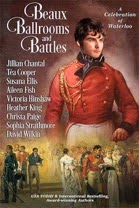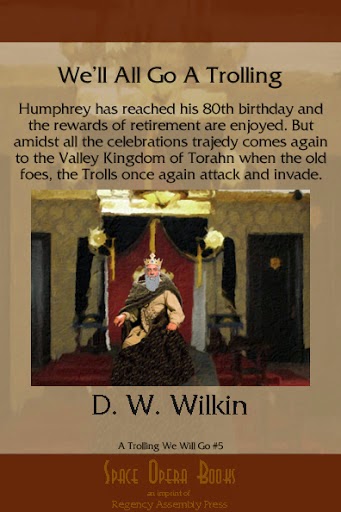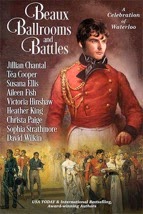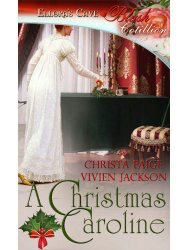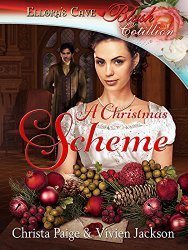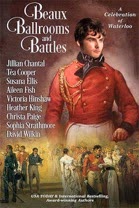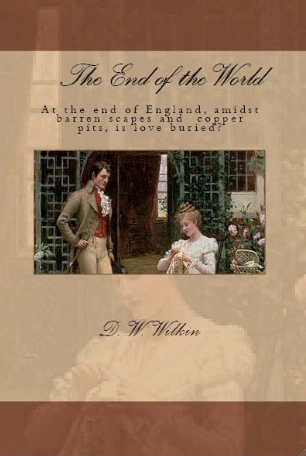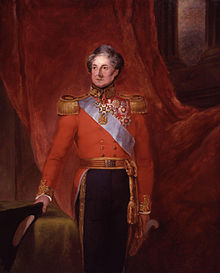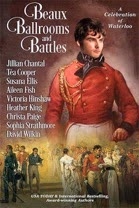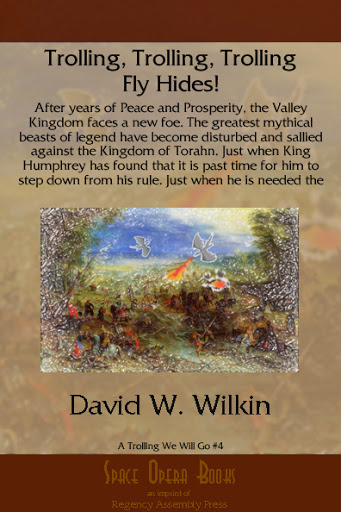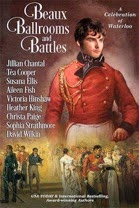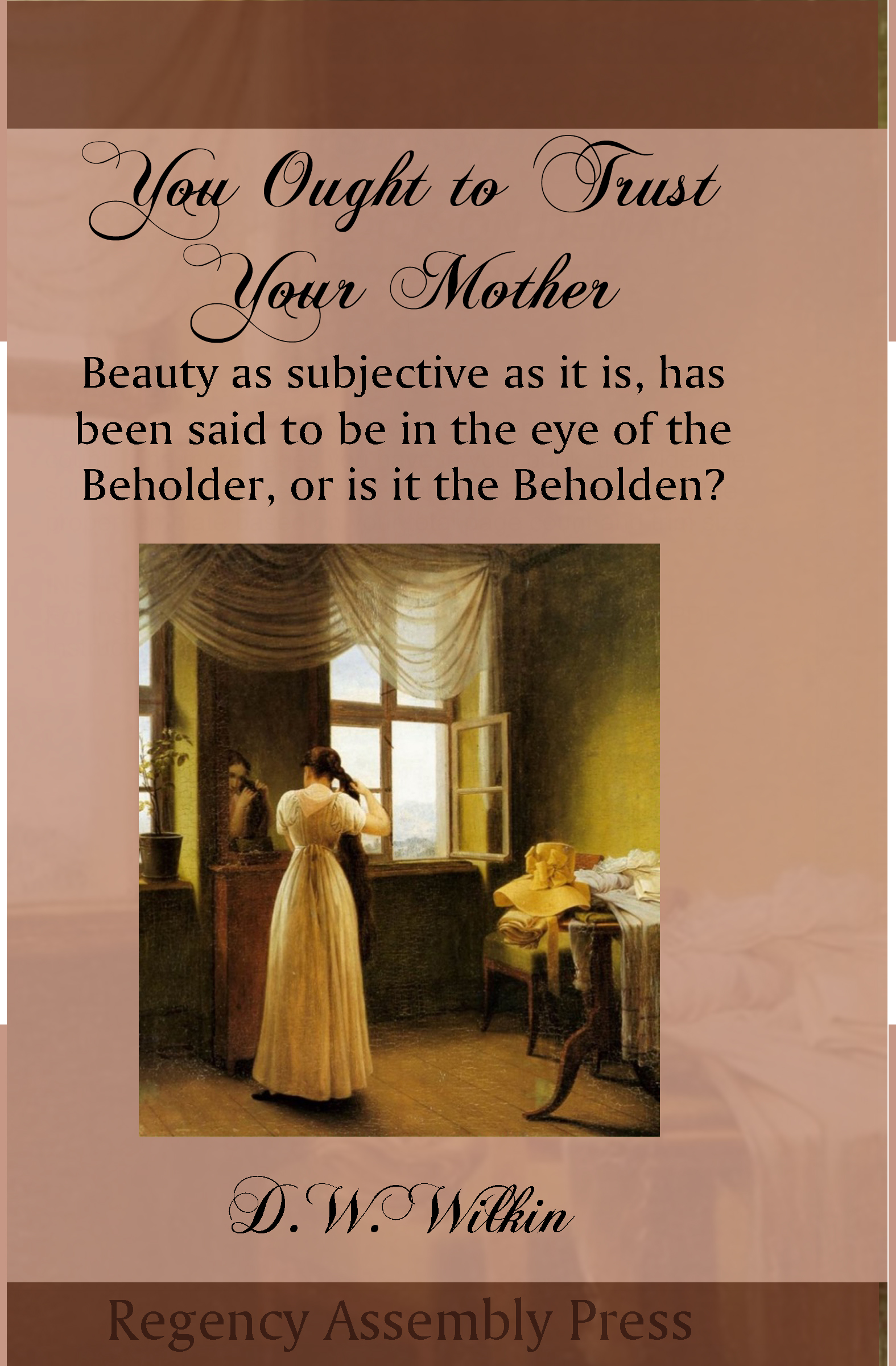Today we have an author interview from my latest work, Beaux Ballrooms and Battles anthology.
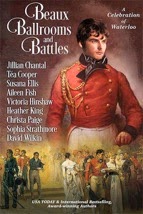
It will be available digitally for $.99 and then after a short period of time sell for the regular price of $4.99
The Trade Paperback version will sell for $12.99
My story in the anthology is entitled: Not a Close Run Thing at All, which of course is a play on the famous misquote attributed to Arthur Wellesley, “a damn close-run thing” which really was “It has been a damned nice thing — the nearest run thing you ever saw in your life.”
Today we are fortunate to have with us Susana Ellis who writes in the Regency romance genre.
1)What moved you to become an author?
Being a reader, mostly. And being curious as to how people lived in the past. I learned a lot about history from reading Jean Plaidy books in high school, and became hooked on the Regency from reading Georgette Heyer. You might say I enjoy learning history from reading historical fiction rather than memorizing dates and facts. I guess it’s really the people that interest me.
2) How did you find out about the Waterloo project?
Well, I got the idea when our local RWA group speaker spoke about how doing anthologies and having 8-10 people all working together to promote the project is a great way to find new readers. Almost at the same time, I realized that the 200th anniversary of the Battle of Waterloo would be coming in 2015, and since the Napoleonic War is constantly referred to in Regency romances, it seemed like the perfect theme. After all, the bicentenary will only happen once!
3) Can you tell us some of the things that attracted you to writing a piece on the anniversary of this famous battle?
Well, as a former French teacher, I talked rather a lot about the historical sites of Paris, and Napoleon as always fascinated me. Now that I’m writing Regency romance, I get to look at it from the other side. The war is a backdrop in nearly every Regency romance, and I enjoyed learning more about it—especially the people fighting it—from reading Bernard Cornwell’s Waterloo  and Georgette Heyer’s An Infamous Army
and Georgette Heyer’s An Infamous Army  and The Spanish Bride
and The Spanish Bride  .
.
4) Tell us about your current story in the anthology.
Lost and Found Lady spans a period of 22 years, from when my heroine was born during Napoleon’s rise to power to the Battle of Salamanca in 1812, when she meets the hero and falls in love, only to be separated, and finally at the Battle of Waterloo, where they meet again under very different circumstances.
5) How did the story begin to develop in your mind?
The idea was for my protagonists to meet in Spain prior to Waterloo, become separated, and then reconcile in Belgium. Of course, I had to come up with reasons for them to be in Spain, and the rest developed from there. FYI: I was also a Spanish teacher and had studied in Santiago de Compostela and traveled widely throughout the country, which is why it seemed a natural setting for the story.
6) What did you find most challenging about this story?
Well, I didn’t know that much about it at first, which is why I started early on reading Cornwell and Heyer. My stories are fictional, but I do want them to seem realistic from a historical standpoint. I discovered reading about soldiers and how they lived was extremely enjoyable, and I’m especially fascinated with the true story of Brigade-Major Harry Smith and how he came to marry his own Spanish bride, Juana Smith, who traipsed around Spain with him through the end of the war and also in his further career.
7) Tell us a little about yourself.
I live in Toledo, Ohio during the year and central Florida in the summer, where I assist my elderly parents. I lived in Ecuador for three years and traveled a great deal in Spain, France, Mexico, and parts of Central and South America. Now I’m focused on Britain, and hope to travel there every year to visit as many historical sites as I can find time for.
8) What is your next work, and beyond that, what do you want to work on?
I am currently revising a time travel novel about a young woman who discovers she was abducted to the 21st century from the Regency period and travels back to find out the truth about her origins. I also plan to release a prequel to the story featuring my time-traveling blog character, Lady Pendleton, who also has a role in the novel. These two: probably toward the end of the year. I have a couple other projects that may come out sooner than that.
9) In the Waterloo story, is there an excerpt to share? Your favorite scene, a part of your life that you put into the work and think it came out exceptionally well that you would like to share.
“I don’t like the look of those clouds, monsieur,” Tobias McIntosh said in fluent French to the gray-bearded old man in a sailor hat waiting impatiently near the rowboat that was beginning to bob more sharply with each swell of the waves. “Are you sure your vessel can make it safely all the way to Newhaven in these choppy seas?”
The old man waved a hand over the horizon. “La tempête, it is not a threat, if we leave immédiatement. Plus tard…” He shrugged. “Je ne sais pas.”
“Please, mon amour,” pleaded the small woman wrapped in a hooded gray cloak standing at his side. “Allow me to stay with you. I don’t want to go to England. I promise I will be prudent.”
A strong gust of wind caught her hood and forced it down, revealing her mop of shiny dark locks. Tobias felt like seizing her hand and pulling her away from the ominous waves to a place of safety where she and their unborn child could stay until the senseless Terreur was over.
“Justine, ma chère, we have discussed this endlessly. There is no place in France safe enough for you if your identity as the daughter of the Comte d’Audet is discovered.” He shivered. “I could not bear it if you were to suffer the same fate at the hands of the revolutionaries as your parents did when I failed to save them.”
She threw her arms around him, the top of her head barely reaching his chin. “Non, mon amour, it was not your fault. You could not have saved them. It was miraculeux that you saved me. I should have died with them.”
She looked up to catch his gaze, her face ashen. “Instead, we met and have had three merveilleux months together. If it is my time to die, I wish to die at your side.”
Tobias felt like his heart was going to break. His very soul demanded that the two of them remain together and yet… there was a price on both their heads, and the family of the Vicomte Lefebre was waiting for him in Amiens, the revolutionaries expected to reach them before midday. It was a dangerous work he was involved in—rescuing imperiled French nobility from bloodthirsty, vengeful mobs—but he had pledged himself to the cause and honor demanded that he carry on. And besides, there was now someone else to consider.
“The child,” he said with more firmness than he felt. “We have our child to consider, now, Justine ma chère. The next Earl of Dumfries. He must live to grow up and make his way in the world.”
Not to mention the fact that Tobias was human enough to wish to leave a child to mark his legacy in the world—his and Justine’s. He felt a heaviness in his heart that he might not live long enough to know this child he and Justine had created together. He could not allow his personal wishes to undermine his conviction. Justine and the child must survive.
Justine’s blue eyes filled with tears. “But I cannot! I will die without you, mon cher mari. You cannot ask it of me!”
“Justine,” he said, pushing away from her to clasp her shoulders and look her directly in the eye. “You are a brave woman, the strongest I have ever known. You have survived many hardships and you can survive this. Take this letter to my brother in London, and he will see to your safety until the time comes that I can join you. My comrades in Newhaven will see that you are properly escorted.”
He handed over a letter and a bag of coins. “This should be enough to get you to London.”
After she had reluctantly accepted and pocketed the items beneath her cloak, he squeezed her hands.
“Be sure to eat well, ma chère. You are so thin and my son must be born healthy.”
She gave him a feigned smile. “Our daughter is the one responsible for my sickness in the mornings… I do not believe she wishes me to even look at food.”
She looked apprehensively at the increasingly angry waves as they tossed the small boat moored rather loosely to a rock on the shore and her hands impulsively went to her stomach.
“Make haste, monsieur,” the old sailor called as he peered anxiously at the darkening clouds. “We must depart now if we are to escape the storm. Bid your chère-amie adieu maintenant or wait for another day. I must return to the bateau.”
“Tobias,” she said, her voice shaking.
He wondered if he would ever again hear her say his name with that adorable French inflection that had drawn him from their first meeting.
“Go, Justine. Go to my family and keep our child safe. I promise I will join you soon.”
He scooped her up in his arms and carried her toward the dinghy, trying to ignore her tears. The old sailor held the boat as still as he could while Tobias placed her on the seat and kissed her hard before striding back to the shore, each footstep heavier than the last.
He studied the darkening sky as the sailor climbed in the boat. “You are sure it is safe?”
“La Chasseresse, she is très robuste. A few waves will not topple her, monsieur.”
“Je t’aime, mon amour,” she said to him plaintively, her chin trembling.
“Au revoir, ma chère,” he said, trying to smile, although his vision was blurring from tears.
Will I ever see her again?
He stood watching as the dinghy made its way slowly through the choppy sea to the larger ship anchored in the distance, grief-stricken and unable to concentrate on anything but his pain. When the ship finally sailed off into the horizon, he fell to his knees and prayed as he had never done before for the safety of his beloved. He remained in that position until drops of rain on his face reminded him of the Lefebre family waiting for him in Amiens.
With a deep breath, he rose and made his way to the nearby forest, where his horse waited, tied to a tree.
“Come, my friend. We have a long, wet journey ahead of us.”
Setting foot in the stirrup, he swung his leg over the saddle and urged the horse to a gallop, feeling his heart rip into pieces with every step away from his beloved.
10) Who do you think influenced your writing?
Georgette Heyer, of course. Katherine E. Woodiwiss, Mary Balogh, Joan Smith, Jane Ashford, Allison Lane, Vanessa Kelly…pretty much all the Signet and Zebra Regency authors. And the newer ones too. I just wish I had more time for reading these days!
11) When writing, what is your routine?
I’m a morning writer. The earlier the better. I write slowly, but my first draft is pretty well polished.
12) Do you think of yourself as an artist, or as a craftsman, a blend of both?
A lover of stories. The best reward for me is to hear that others enjoy them as much as I do.
13) Where should we look for your work.


There is Susana’s website: http://www.susanaellis.com
Facebook has a whole page dedicated to Susana https://www.facebook.com/susana.ellis.5
Twitter, look for Susana’s Tweets at https://twitter.com/susanaauthor

